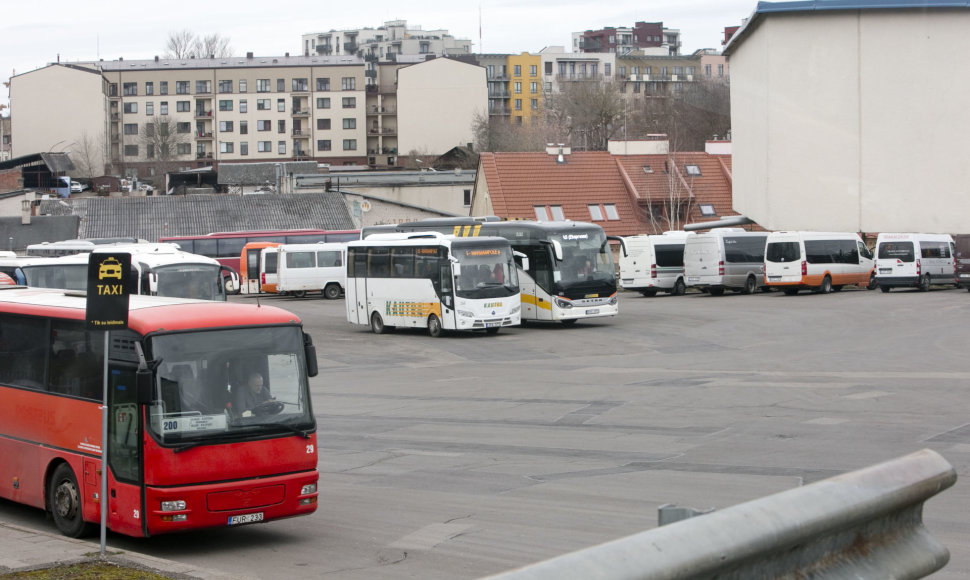Unlike Lithuania, Latvia’s passenger transport sector has reached the level of the European Union. Currently, Latvia is running a national tender on the right to offer public transport services – bus transportation across the country (except nationally significant cities). The goal for this tender is to fully equip the public transportation fleet with new, ecological buses that meet modern requirements, would vastly reduce CO2 emissions, and would satisfy all types of public transportation needs for the next decade.
Meanwhile, there is no sign of a breakthrough towards greater service quality and fair competition in the Lithuanian inter-city transportation sector. Inter-city transportation is not subsidised, carriers can set trip prices at will, and, furthermore, all the non-competitive routes have been operated for over thirty years by the same carriers without organising any tenders.
This situation showcases how the country lacks a unified public transport development concept, and so we have been unable to overcome the consequences of the Soviet era. The lack of fair and open competition has barred the way for development and higher quality services.
Tenders for the right to perform passenger transportation on regional routes are organised by municipalities. Almost every one of them has their own carrier with 5-7 buses who is often the winner. As caring for the passengers falls exclusively on the municipalities, and there are quite a few of them, the volume of procurements is intentionally reduced to minimum levels, which does not encourage private carriers to invest more funds into short-term purchases. Buses on both regional and local routes are outdated (20 years old on average and their engines do not meet modern EURO 6 standards) and lack the equipment to ensure passenger comfort.
Last year, the Competition Council ruled that by extending contracts for passenger transport on regular long-distance road transportation routes with 42 carriers, the Lithuanian Transport Safety Administration (LTSA) limited competition and barred new competitors from entering the market. The LTSA was not only fined 43,120 euros but was also ordered to terminate the contracts and select carriers by launching competitive selection procedures.
After its investigation, the Competition Council found that specific inter-city routes in Lithuania are currently serviced by 43 private and municipal-owned companies, but only one of them was selected by tender. while in 2018 the LTSA extended contracts with the other 42 carriers for the same routes without a competitive procedure. This way, already established companies are given privilege over other entities and establish fundamentally different market conditions.
The company B-Bus is shocked by how the Lithuanian National Road Carriers Association encourages extending contracts and not procurement despite the Competition Council ruling that LTSA must organise carrier selection tenders within eight months.
In Lithuania, during the COVID-19 pandemic the total number of transport passengers fell by 75%, and cargo turnover by 60%! Meanwhile, during the same period in Latvia passenger counts fell by 40% and cargo turnover by 5-10%. These numbers reflect how dependent this business is on government actions, so it would be appropriate for the Lithuanian government to answer for its decisions as is the case in Latvia.
Unfair competition hampers the development of Lithuania’s domestic passenger transportation system. Meanwhile, on January 1, 2020, President G. Nausėda signed legislative amendments that loosened the limits on internal transactions, greatly facilitating non-competitive purchasing for municipalities. Through internal transactions, municipalities can make purchases from their local transport companies without announcing public tenders (an elementary municipal council ruling suffices). This greatly disadvantages new private carriers from entering the market and offering vastly lower transportation prices using new, modern busses (manufactured in 2020). Instead, municipalities choose companies they control with their old buses and inadequately high pricing.
It is very unfortunate, but most of Lithuania’s municipalities have exploited the internal transaction changes and signed long-term internal contracts with municipal-managed companies without announcing public tenders. For example, the municipalities of Kaunas, Klaipėda, Kretinga, Plungė, and Šiauliai have decided to transfer a part (or even a majority) of their total route network to municipal-managed “local” companies without announcing any public selection process. Based on public procurement practices, the municipalities could save and obtain even higher quality services through tenders as opposed to internal transactions.
We hope that the new Seimas will take action to rectify the critical legislative situation, which grants municipalities full rights to form internal transactions, thus distorting both the Lithuanian passenger transport market and the essence of the competition itself. We would like to urge the current Lithuanian government to establish regulations in the transport sector to allow it to function in accordance with the country’s most important document – the Constitution.
The B-Bus group has been operating in the Lithuanian passenger transport market since 2017. The group’s companies UAB Transrevis and UAB Umatrans offer public transportation services in the Vilnius, Šiauliai, Kaunas, and Prienai regions. B-Bus is one of the largest private passenger carriers in the Baltic States. The company’s vehicle fleet is comprised of over 500 buses. In 2019, the group’s companies in Latvia and Lithuania carried 40 million passengers and travelled a total of 30 million kilometres.












